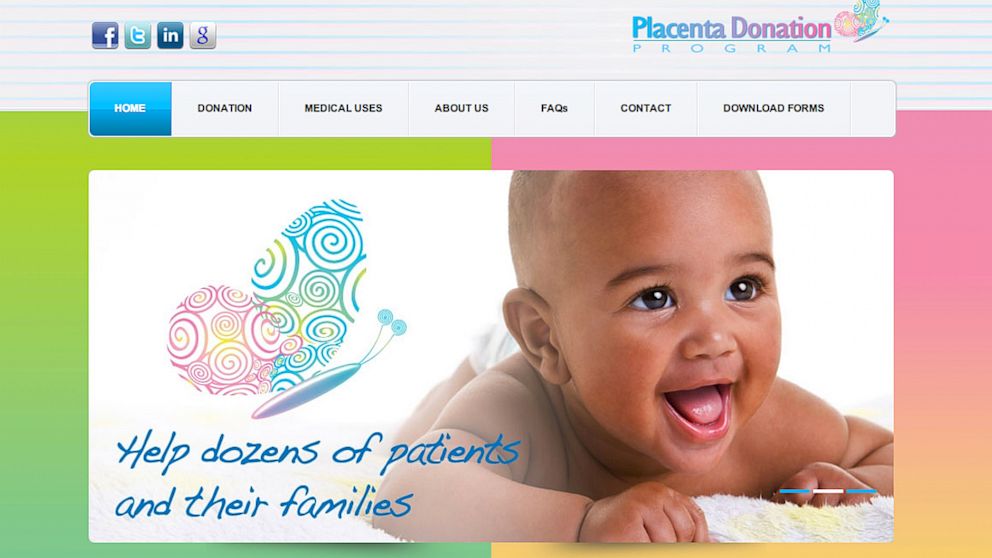FDA Cracks Down on Placenta Products
Placenta healing products haven't been approved by the FDA, but are they safe?

Sept. 20, 2013— -- A Georgia company is under fire from its investors after the Food and Drug Administration called it out for selling injections containing human placenta that the agency has not approved.
MiMedx is a publically traded, for-profit company that takes donated human placentas -- solicited via a website featuring babies and a cartoon butterfly -- and turns them into health products. These can be used as skin grafts or injections, and they're intended to treat inflammation and scar tissue formation as well as promote healing, according to the company's website.
But the FDA says there are currently no licensed products that contain placental tissue at all, and it sent MiMedx a letter explaining that the company violated federal law by failing to get the proper license or investigational new drug application prior to marketing its ground up placenta products.
As a result of the FDA letter, MiMedx's investors have filed a class-action lawsuit alleging that the company made misleading statements and falsely inflated stock market prices.
"If it's a biologic, it has to be put through FDA scrutiny and they have to do extensive testing before they're able to market the product," said Phillip Kim, an attorney with the Rosen Law Firm in New York City. It is one of the law firms that have either filed several class-action lawsuits on behalf of MiMedx investors or announced they're investigating MiMedx. Kim said dozens of investors have reached out to his firm.
MiMedx is registered with the FDA to accept placenta donations, but manipulating them beyond a certain extent makes them drugs, which means they would need to be approved and licensed by the FDA under federal law, according to an Aug. 28 letter the FDA sent to MiMedx, based in Marietta, Ga. This means MiMedx needed to demonstrate the "safety and efficacy" of several of its injectable products -- which are crushed, dehydrated placenta -- via clinical trials, which it hadn't done, the letter reads.
"Mother nature did safety and efficacy testing on the tissue," MiMedx CEO Pete Petit told ABCNews.com, likening treatment with a placenta-based product to a kidney transplant rather than the use of a drug. Since the placenta product is made from human tissue, he said testing is unnecessary because placental cells already work in the human body.
He said that over the last two years, his company has shipped about 18,000 vials of the crushed placental product, but it has not received a single report of a patient having a bad reaction. If safety were in question, he said he would expect more than a letter from the FDA.
"We have a philosophical misunderstanding on how we grind our product up," Petit said, referencing the part of the FDA letter that says tissue-based products regulated under the Public Health Service Act need to be "minimally manipulated" to avoid needing clinical trials for FDA approval.
In a response to the FDA's letter, the company filed with the Securities and Exchange Commission on Sept. 5 to say that it is still expecting between $54 million and $60 million in revenue this year.
Dr. Stephen Badylak, who heads a regenerative medicine laboratory at the University of Pittsburgh, said placental tissue is somewhat mysterious, but it does actually have healing properties.
"There are so many goodies in these naturally occurring materials that it's virtually impossible to isolate a particular growth factor and say that's what's making a wound heal quicker," Badylak said.
Still, human placenta cells could potentially carry greater health risks than placental cells from pigs or cows, which are sometimes used in other products, because they can spread human viruses and bacteria, Badylak said. And since the drugs are being treated as human tissue donation, they don't have the same sterility standards as other drugs or medical devices.



